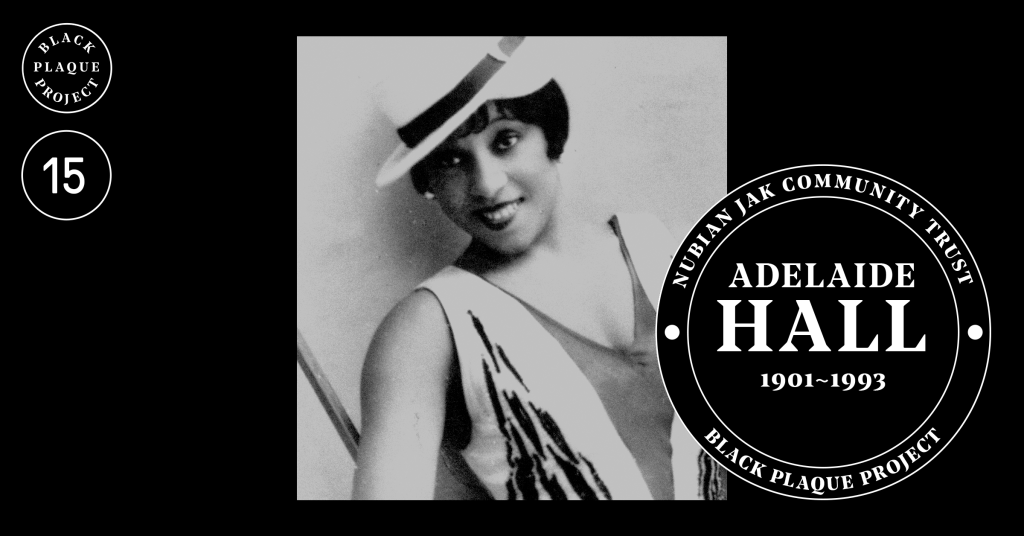Adelaide Hall: A Legendary Pioneer of Jazz and Broadway
When we think of jazz and Broadway, certain names immediately come to mind—icons like Duke Ellington, Louis Armstrong, and Billie Holiday. But there’s one trailblazer whose contribution is often overlooked despite her groundbreaking role: Adelaide Hall. A celebrated singer, dancer, and actress, Hall made significant strides in the entertainment industry, breaking down racial barriers and introducing new vocal techniques that helped shape the jazz genre as we know it. From Harlem’s jazz clubs to London’s grand stages, Hall’s influence is undeniable. Let’s take a closer look at her remarkable life and career.
Early Life and Background
Adelaide Hall was born on October 20, 1901, in Brooklyn, New York. Her family was musically inclined, and she was exposed to music from a young age. Her father, a music teacher, introduced her to the piano, while her mother supported her burgeoning passion for dance and performance. It was clear early on that Hall had a rare talent, one that would soon take her from the modest stages of her neighborhood to the global stage.
Growing up in an era of racial segregation, Adelaide’s path wasn’t easy. Yet, her family’s encouragement and her fierce determination drove her forward. Her early experiences laid the foundation for a future star who would redefine what it meant to be a black woman in the performing arts during the early 20th century.
The Beginning of Her Career
Hall’s career began in earnest in the early 1920s when she started performing in clubs and theaters around Harlem, New York. This was the Jazz Age, a time when the Harlem Renaissance was in full swing, and the neighborhood’s vibrant music scene became a launching pad for many African-American artists. Hall, with her stunning voice and captivating stage presence, quickly made a name for herself.
In 1921, she got her first big break when she joined the chorus line of Shuffle Along, one of the first Broadway musicals to be written, produced, and performed by African Americans. The show’s success catapulted Hall into the spotlight, and she quickly became known for her versatility as a singer and dancer.
Breakthrough on Broadway
Adelaide Hall’s rise on Broadway continued throughout the 1920s, where she appeared in notable productions such as Runnin’ Wild and Blackbirds of 1928. The latter, in particular, was a career-defining moment, as it featured her signature performance of “I Can’t Give You Anything But Love.” This song, and her electrifying delivery, made her a household name and solidified her status as a Broadway star.
What truly set Hall apart was her ability to blend traditional show tunes with the raw, improvisational spirit of jazz. This fusion made her a favorite not only on Broadway but in the thriving jazz circles of the time.
Adelaide Hall’s Impact on Jazz
Adelaide Hall wasn’t just a Broadway star—she was a major influence in the jazz world, too. During the 1920s and 1930s, Hall collaborated with some of the greatest jazz musicians of the era, including the legendary Duke Ellington. Their partnership produced several notable recordings, including the hauntingly beautiful “Creole Love Call,” where Hall’s wordless vocals melded seamlessly with Ellington’s orchestra. This collaboration was groundbreaking, showing how a vocalist could use their voice as an instrument, not just a vehicle for lyrics.
Her contributions to jazz didn’t stop there. Hall was also a pioneer of scat singing—a vocal improvisation style that would later be popularized by artists like Ella Fitzgerald. Hall’s playful yet skillful use of scat in her performances was something entirely new for audiences at the time, and it became a hallmark of her sound.
Scat Singing: A New Vocal Style
Scat singing, characterized by its use of nonsensical syllables and freeform melody, allowed jazz vocalists to improvise in the same way that instrumentalists did. Hall was one of the first singers to bring this vocal technique to mainstream audiences. Her innovative approach paved the way for countless jazz vocalists who followed, proving that the human voice could be just as dynamic and expressive as any instrument in the orchestra.
Adelaide Hall in Europe
In the late 1930s, Hall made a significant move that would expand her career even further: she relocated to Europe. While she had found success in the United States, she recognized that Europe offered greater opportunities, particularly for African-American artists. Jazz was gaining popularity across the Atlantic, and Hall’s unique vocal style was in high demand.
Her European adventure began in Paris, but it was in London that Hall truly found a new home. Her performances across Europe, from France to the United Kingdom, were met with great enthusiasm, and she quickly became a fixture in the European jazz scene.
Life in London
London, in particular, welcomed Adelaide Hall with open arms. She became a beloved figure in the West End theater scene and continued to perform at high-profile venues. Hall’s success in London wasn’t limited to the stage—she also opened her own nightclub, The Florida Club, which became a hub for jazz lovers in the city.
Despite the challenges of World War II, Hall continued to perform, entertaining troops and boosting morale through her music. Her resilience and dedication to her craft kept her career thriving even in difficult times.
Her Role in Breaking Racial Barriers
Adelaide Hall’s career was about more than just music and theater—it was also a testament to her ability to break down racial barriers. As a black woman in an industry dominated by white performers, Hall faced numerous challenges. She dealt with segregation, racism, and discrimination, but she never let those obstacles stop her from achieving success.
Through her talent and determination, Hall proved that African-American artists could excel on the biggest stages and in the most prestigious venues. She helped pave the way for future generations of black performers, showing the world that talent knows no color.
Contributions to Film and Radio
Hall’s talent wasn’t confined to live performances. She also made significant contributions to film and radio, further cementing her status as a versatile entertainer. She appeared in films like The Thief of Bagdad and made numerous appearances on BBC radio, where her voice reached millions of listeners. Through these platforms, Hall brought jazz to new audiences, helping to popularize the genre even more.
Adelaide Hall’s Enduring Legacy
Adelaide Hall’s influence on jazz and Broadway continues to be felt today. Her pioneering work in scat singing and her ability to blend jazz with Broadway sensibilities set her apart as one of the most innovative performers of her time. Many of the jazz greats who followed in her footsteps, from Ella Fitzgerald to Sarah Vaughan, owe a debt to Hall’s trailblazing work.

Awards and Recognitions
While Hall’s contributions were widely recognized during her lifetime, she received several honors later in her career. She was celebrated not only for her talent but also for her role as a cultural pioneer. Although she didn’t always receive the recognition she deserved during her peak, history has come to acknowledge her as one of the greats.
Later Years and Retirement
Adelaide Hall never fully retired from performing, but she did scale back her career in her later years. Even so, she continued to be an important figure in the jazz world, often participating in retrospective events and tributes to the early days of jazz. She remained active and influential until her death in 1993 at the age of 92.
Death and Posthumous Recognition
Adelaide Hall passed away in London, leaving behind a legacy that would continue to inspire generations of artists. Since her death, there has been a resurgence of interest in her music, with many modern jazz performers citing her as an influence. Her recordings remain timeless, capturing the energy and innovation that defined her career.
Conclusion
Adelaide Hall was more than just a performer; she was a pioneer who reshaped the landscape of jazz and Broadway. Her contributions to music, her role in breaking racial barriers, and her innovative vocal techniques continue to inspire and influence today’s performers. Adelaide Hall’s legacy is one of resilience, talent, and groundbreaking achievement.
FAQs
- What were Adelaide Hall’s most famous collaborations?
- Adelaide Hall is best known for her work with Duke Ellington, particularly their collaboration on “Creole Love Call.”
- How did Adelaide Hall influence scat singing?
- Hall was one of the pioneers of scat singing, using her voice as an instrument to improvise melodies, which influenced future jazz vocalists like Ella Fitzgerald.
- Why did Adelaide Hall move to Europe?
- She moved to Europe to take advantage of greater opportunities for African-American performers, finding particular success in London.
- How did Adelaide Hall break racial barriers?
- As a black woman in a predominantly white industry, Hall overcame segregation and racism to perform on the world’s biggest stages, helping pave the way for future black artists.
- What is Adelaide Hall’s legacy in jazz today?
- Hall is remembered as a pioneer of jazz, particularly for her innovative scat singing and her role in blending jazz with Broadway music.
Read More:
فريد ماير في أستراليا: اكتشاف الجودة والتنوع ريسيفست
anime:6tbztsekyf0= sus
vyvymanga













Post Comment